"One's too many and a hundred's not enough!" |
Ned (Howard Da Silva), the bartender, dispensing the
best single quote about alcoholism I've ever come across. |
I don't think I know anyone who has absolutely no relationship with alcohol. Some are in its thrall, some flirt with it and some give in to it utterly to slur to a stop in what must always be a miserable and health-threatening conclusion. Even alcohol's staunch teetotal critics say volumes about it by staying clear from it and indeed, clear-headed. In the paraphrased words of Simpsons creator Matt Groening, it's the cause of and solution to most of life's ills. My own intimate relationship with the delightful/demonic drink is abnormally affected by its complete ineffectiveness to punish me at the close of play. Despite some evenings of Herculean excess, I suffer no more than mild dehydration the morning after and have not had a single experience I could classify as a hangover. Of my friends, I'm the only one I know in this unique and therefore more dangerous relationship with the spiritual world. I get all the glee and none of the smashed. But I do not ignore all the emotional angst and rational logic that sits on my back like a barbed wire rucksack. Guilt is packed well inside and pricks me often because it's saying what I know but don't want to recognise – the innate and terrible contradictions of addiction... Alcohol is a poison. It gives you a buzz. It turns you into an addict. At a certain point, there is euphoria and confident recklessness and then as if by some law of evolution, relationship strife and depression. At another even more certain point, there is death. There is a German saying which concludes that despite the proven fact that alcohol and tobacco conspire to cut short lives, those lives would not be worth living without both poisons. I'm on the same page but wanting to turn over.
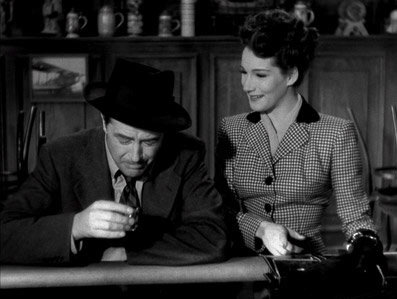
Now, I do not pour a drink and think, "Is this the one that will deliver the liver's fatal blow?" Actually, to be honest, I sometimes do. I recognise a great many of the casual/heavy drinker's mind-sets. Any visit by anyone after 6pm and you (and they by proxy) are allowed a drink; any celebration and any tragedy, ditto. The only facet of this fascinating and terrible substance I don't understand is why I drink at all apart from the buzz. Isn't there always a psychological reason for it, something lacking in your life that alcohol compensates for? Damned if I know what that could be. My parents barely qualified as social drinkers. As a teen I hated beer and found it hard to socialise with drinking friends until I found a mix of soft and hard that would go down relatively painlessly but have the same intoxicating effect. The word 'alcoholic' was hopelessly tied up with the clichéd drunk, dishevelled and serpentining down the street, brown papered bottle in hand, slurring words for his/her country. As long as none of my friends or I acted remotely like this, we were OK. Weren't we? So it's a disease, alcoholism, one that the patient gives him/herself. So what's the cure? How about watching Hollywood's last incoherent word on the subject, Billy Wilder's wonderful (and sometimes cringe-making by recognition of behaviour) The Lost Weekend. I find it fascinating that it was Wilder's experiences with recovering alcoholic Raymond Chandler, his co-writer on Double Indemnity, which drove him to take this movie on, an adaptation of the book by Charles R. Jackson. It's far healthier to exorcise your demons through celluloid. Chandler went straight back on the bottle.
Drinkers and cigarette addicts will recognise a great deal of the lead's behaviour in this movie because it nails the mind-set of a man who can barely function beyond his last hit. The uncertainty about where the next one's coming from can cripple an addict's reason and logic. How many ex-smokers out there remember trawling ashtrays and rubbish bins for that half smoked tube after running out way beyond closing time? To a non-smoker that must sound disgusting but hey, when you're whipped by the devil, it's best to keep moving forward. The Lost Weekend's story is a simple one. Don Birnam is a writer with a wee problem. Making his brother and girlfriend believe he's been on the wagon for ten days straight, he schemes to have them leave for a show without him. All three are vacation bound but Don is in the grip of alcoholism so tight that he has suspended a bottle of whisky outside the kitchen window. Once it's discovered and poured down the sink, the brother and girlfriend leave. It's now up to Don to figure out how he's going to get his next fix. He ends up at a bar where we get flashbacks to a happier life and eventually he finds himself locked away on the verge of suffering from the dreaded delirium tremens. There's only one way out for Don but does he take it?
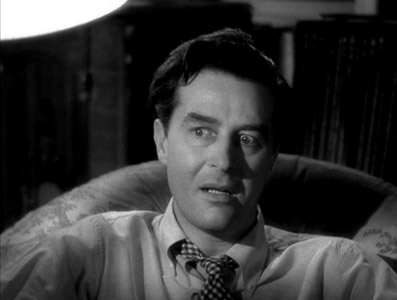
The Lost Weekend has the extraordinary distinction of having won Best Film at the Oscars and the Grand Prix (before it became the Palme D'Or) at 1945's Cannes Film Festival, one of only two movies to achieve such global domination (the other was Marty). Ray Milland also picked up both gongs too for his astonishingly honest, frightening and vulnerable performance as Don. I was delighted to find out that he was born Alfred Jones (there are two reputable sources differing wildly over his real birth name but the 'Alfred' and 'Jones' are both in there so we'll settle for that). Checking the Katz Encyclopaedia, he's listed there as Reginald Truscott-Jones, a third variant). But I was even more delighted on discovering he was Welsh (doesn't seem to be any argument over that) and in fact, the first Welsh actor to get the Academy award. It's Milland's movie and he grabs the part by the scruff of the neck. As a younger film-nut, I knew Milland's work from two terrific films, images from which are still swimming around in the labyrinth I call a memory; his older, scheming and murderous husband in Hitchcock's Dial M For Murder confused at a key's absence and more shockingly for me (I will never forget that final shot), Dr. James Xavier in X (aka The Man With X-Ray Eyes). But nothing in my experience of Milland's career has given me any inkling of the man's power unleashed by Wilder in this hard-hitting exposé of rampant and chronic alcoholism.
Milland is in almost every scene and the scenes he's not in, he's the only subject that's talked about. Playing his endlessly put upon girlfriend is Jane Wyman. Not every chronic alcoholic has such a staunch ally as Wyman's character, Helen St. James. She regards booze as a love rival (a novel approach) and will stay with her man come gin or rye water until what may be the bitter end. She's by no means a perfect character and this level of loyalty strains believability to its limit but it is refreshing to see someone so ousted from a relationship and yet still so firmly committed to turning around her man's fortunes. In a cliché of rare mundanity, it's said that you have to hit rock bottom before striking up for the top again. Unrealistically in what's known as 'real life', Helen's with Don all the way down and yet Wyman is convincing and stays so. This is a movie after all. Even in the last scene (no spoilers) there's dignity in her performance up against the strongest performance that year in Hollywood.
Alcoholism is a tough nut to crack cinematically because it's an abstract visual idea. I guess there are two ways to go; performance and surrealism. While Milland digs for gold inside himself to bring the torment out so we can get a good look at it, Wilder uses the hallucinatory effects of the DTs as a way to go surreal. Now, I don't say this lightly but forgive the bat on a string. Older movies are still entrenched in the context of their making and the technology wasn't around to paint offending items from frames. The editor, or 'Editorial Supervisor' Doane Harrison, has tried hard to give the bat on a string some verisimilitude but despite the crudity of the effects, it's Milland's primal screams that render this bit of silliness into something truly disturbing. Milland's performance has upped the effect of everything else in the scene and even renders some dodgy special effects into the stuff of nightmares. The scenes at Belle Vue Hospital are also terrifying. There's something about a full-throated male scream that bypasses acting judgement and just bores straight into your subconscious. I really believed the screaming guy was covered in beetles. Shudder...
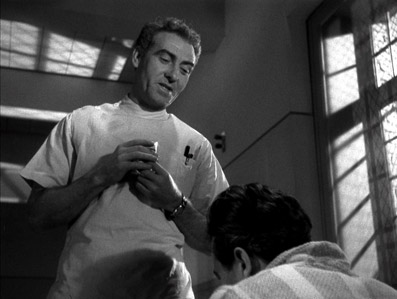
Of course if you want true surreality in the depiction of alcoholism, then look no further than Michael Powell's superb Small Back Room. Here is the giant whisky bottle menacing David Farrar in a truly frightening expressionistic sequence of cinematic bravado illustrating a character's self-loathing. The Lost Weekend ticks off a number of firsts, cinematic tricks that have become worn from over use (and in one case hilarious through recognition). Just over an hour in, Don wants to pawn his typewriter to pay for booze and finds that it's Yom Kippur, a Jewish holiday and all the pawn shops are shut. Desperate and fading fast he stumbles down the New York street while the film's shots dissolve in and out of street signs passing him by. He travels fifteen blocks in a short sequence using mixes (I usually abhor the mix unless it's done for very specific reasons and not just as a soft and gutless cut) and this was a first as far as I am aware. The ultimate accolade of this sort of sequence is seeing it turn up in A Christmassy Ted, a Father Ted episode that is essentially two episodes bolted together. Twenty-one minutes in, Father Ted Crilly runs down a beach with bubbles of familiar faces cruelly mocking him. It ends with Father Dougal in a bubble obviously surprised to be there. It makes me laugh out loud every time. But the point is that its roots – and all sequences' origins like this – are in The Lost Weekend and that's one hell of a legacy.
Wilder used both cinematographer and composer ported over from his previous movie Double Indemnity (if we don't include Death Mills, a short documentary directed by Wilder on the German death camps where many of his relatives were killed). The contributions from both masters of their craft cannot be understated. John F. Seitz's photography doesn't call attention to itself and is less stylised than his work on the afore mentioned Noir. But close ups snap to attention in beautifully calibrated black and white and the framing of imposing ceilings from low level adds to Birnam's sense of alcohol-free claustrophobia. Composer Miklós Rósza's contribution is notable for his choice of instrument. Of course, it's still a fully orchestrated bombastic score as was the, ahem, score in the mid forties. But out from the hugeness of his composition peaks a little instrument known as the theremin and its other worldly sound is instantly recognisable. Rósza himself used it to illustrate the unconscious in Hitchcock's Spellbound but it also stands as the primary sound in the music for Robert Wise's The Day The Earth Stood Still. It's the only instrument that you play without touching it. It's front and centre in Danny Elfman's score for Tim Burton's Mars Attacks. Ack ack. By today's standards, Rósza's score is top heavy (I'm certainly not criticising its quality) but it is insistent and ubiquitous and often tries too hard to suggest the hell Don is going through.
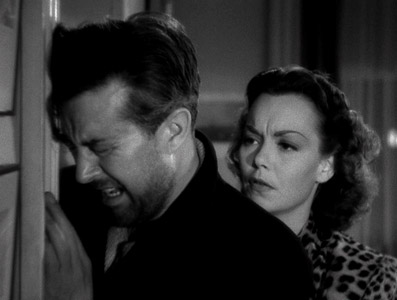
The Lost Weekend is not an easy watch. Let's not pretend that its power isn't linked to uncovering what many hardened drinkers would prefer not to recall. So considerate of alcohol to offer addicts that particular choice of memory suppression. In some ways, it's a slog to see suffering of this kind but it is a compelling slog. I know I've already said it but Milland's performance is spellbinding. We're in the gutter with him for so long over the running time that the weekend's activities go on around him. He gets his daily deliveries which pile up outside the front door of an apartment he's either absent from or suffering in. When Helen arrives to try and stop him from harming himself, she calms him down enough to suggest fixing some breakfast. He then delivers a line so perfectly I actually guffawed. "We have quite a supply of milk!" It's dead-pan but dead on target as a sub-textural piece of dialogue underlining his absurd behaviour over the weekend based on how many deliveries he wasn't home to collect. Despite the justly famous and quoted line at the head of this review, this was certainly my favourite one liner on my first viewing.
So it's another Billy Wilder classic (boy, this guy racked them up) and if ever my favourite Wilder movie makes it on to Blu-ray, the astonishingly cynical but brilliant Ace In The Hole, it'll be my absolute pleasure to sing its abundant praises too. In the mean time, catch The Lost Weekend. You'll never look at a condensation circle left by a glass the same way again...
Although not quite as delicious as the transfer on the simultaneous Masters of Cinema Blu-ray release of Double Indemnity, the HD picture quality here is still impressive. The level of picture detail is sometimes eye-catching for a film of this vintage, though this is more evident in some shots than others, at its best outside or in busily dressed locations, facial close-ups (check Milland's waking eye at 1:01:40 or the sweat and facial stubble – which I've never really picked up on before – when he knocks on Gloria's door nine minutes later) and the material and patterns of clothing. The contrast range is sometimes a tad aggressive, with some picture detail being sucked into the consistently deep blacks. Well, this is noir cinema. Grain is visible but largely unobtrusive and dust and dirt are rare, and while there is some minor picture flickering visible throughout, it never interferes.
The DTS-HD Master Audio 2.0 mono track has the expected range restrictions and a trace of background hiss, but is otherwise clear, clean and distortion free.
Billy, How Did You Do It? (183:16)
Every now and again I'm confronted with an extra feature that is so substantial and of such high quality that it almost demands its own stand-alone release. This is just such a feature. Like that greatest and most entertaining of all filmed filmmaker interviews, The Orson Welles Story, this was a product of the BBC's sorely missed arts documentary series Arena. Originally broadcast in three one-hour segments over three consecutive nights in January 1992, it was were co-directed (with Gisela Grischow) and presented by acclaimed German filmmaker Volker Schlöndorff (he of The Lost Honour of Katharina Blum, The Tin Drum and The Handmaid's Tale) and is constructed around a series of informal interviews conducted with Wilder in a mix of German and English by Schlöndorff and literary critic Hellmuth Karasek. And it's an absolute joy from start to finish. Schlöndorff and Wilder became close friends after Wilder wrote to Schlöndorff to tell him that he believed that The Lost Honour of Katharina Blum was the best German film since Fritz Lang's M, and their easy-going relationship allows for a far more relaxed and forthright exchange than you'd normally find in a documentary work, one that plays at times more like a lively dinner table chat than a formal interview.
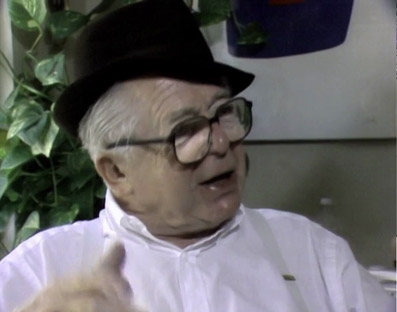
Wilder himself is lively, witty and consistently entertaining, and bristles with fascinating, enjoyable and even quotable anecdotes. Films covered include his debut, The Major and the Minor ("Tomorrow morning I start shooting my first film and I will shit my pants"), A Foreign Affair ("philosophy with a chocolate coating"), the Bing Crosby musical The Emperor Waltz ("A catastrophe! It should never have been made!"), the brilliant commercial flop Ace in the Hole ("Use both knees to kick him in the balls") and Stalag 17 ("One of the easiest films of my life"). He discusses adapting Agatha Christie for Witness for the Prosecution ("If you have Laughton, you're on to a winner"), filming in The Ritz for Love in the Afternoon, devising a dialogue for The Spirit of St. Louis, the original opening sequence of Sunset Boulevard, working with Bogart and Hepburn on Sabrina, with Marilyn Monroe on The Seven Year Itch and Some Like it Hot (Lemon was cheerfully uninhibited about playing in drag while Curtis was deeply uncomfortable), and with Lemon and Shirley McLaine in The Apartment. He talks about working with Raymond Chandler on Double Indemnity and reveals that the split with his then regular screenwriter Charles Brackett was down to Brackett regarding the material as trash and not up Wilder's alley ("Me, I'm a middle European asshole"). He says of Agatha Christie that "for every five hundred great dialogue writers there are five great constructionists," and of his choice of screen weapons, "I prefer the knife. I hate the noise of a gun. I am such a delicate creature." He has plenty to say about Marlene Dietrich, whom he describes as "one of the great faces in cinema," and some straightforward suggestions for budding writers and filmmakers: his key advice for directors is "If they notice the camera, you're lost," while on the subject of whether a director should also be able to write he says, "What IS important is that he is able to read." But in keeping with the film that this documentary accompanies, one of my favourite stories concerns The Lost Weekend: "There's a famous incident. Man comes out of the picture. 'What did you see?' 'Lost Weekend.' 'How was it?' He says, 'Terrific! I've sworn off!' 'You mean you'll never drink again?' He says 'No, I'll never look at another picture.'" There's even footage of Wilder's funeral tribute to his friend and co-screenwriter of twenty-five years, I.A.L. Diamond, at which he directs the incomparable Walter Matthau and Jack Lemon as they perform a sketch he and Diamond wrote. And this is is just a sampling. Utterly bloody wonderful.
Alex Cox Introduction (6:36)
MoC regular Alex Cox, who talks in hushed tones as if sharing a diabolical secret, celebrates the work of key supporting player Frank Faylen and his role as psychiatric nurse 'Bim' Nolan in the film.
The Screen Guild Theatre (30:01)
A radio adaptation of The Lost Weekend that was first broadcast on 7th January 1946, in which Ray Milland, Jane Wyman and Frank Faylen reprise their roles from the film. Obviously at this length the story is seriously compressed, but it still makes for intriguing listening.
Theatrical Trailer (2:06)
In some ways a trailer of its time – "Nothing like this has ever been screened before!" it assures us loudly – but is surprisingly up-to-date in its use of positive press quotes.
Booklet
Another splendid Masters of Cinema booklet, featuring an essay on the film by David Cairns, a comparison between how the DT hallucination sequence plays out in the novel, the screenplay and the final film, a reproduction of a Seagram's advertising campaign based around Ray Milland's celebrated performance, credits for the film and the disc, advice on viewing, and some quality stills.
Another magnificent work from one of the finest directors ever to work in Hollywood gets the treatment it deserves from Masters of Cinema and then some – honestly, if the disc only contained the film or Billy, How Did You Do It? we'd be insisting you buy it, but to get both in one package, plus the booklet, the trailer, the Alex Cox introduction and the radio version is stonking value for money and as close to the definitive version as we can imagine seeing. An absolute must-have. Highly recommended.
|